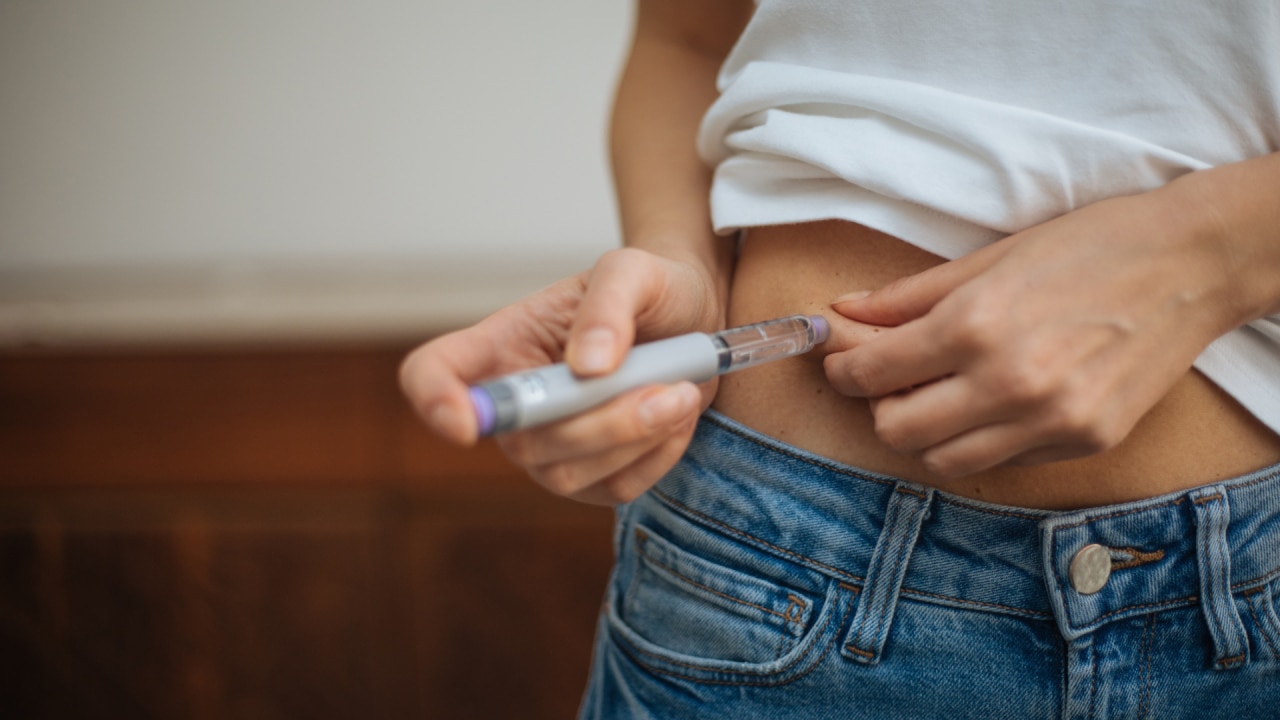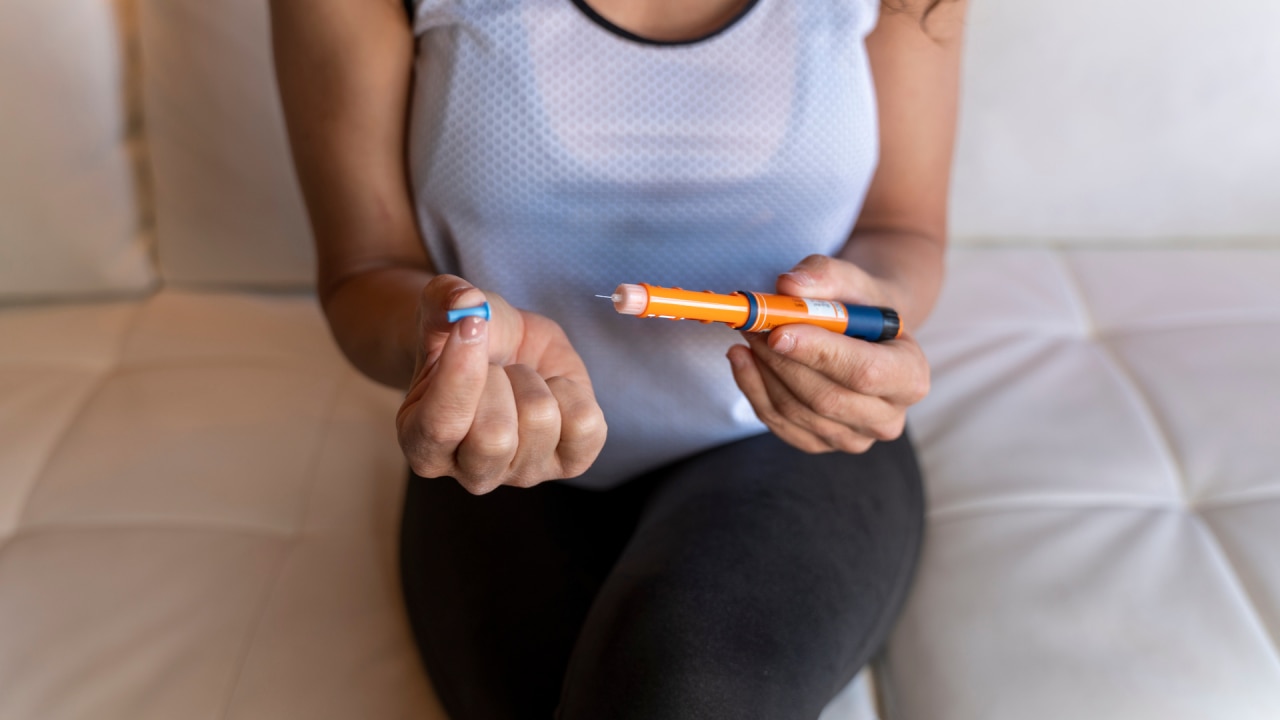Is this the new Ozempic? A new wave of weight loss injectables is here
Experts aren't convinced

Weight Loss
Don't miss out on the headlines from Weight Loss. Followed categories will be added to My News.
Wellness clinics are popping up around the country on the grey market, advertising themselves as ‘performance clinics’ and serving up injectables advertised to promote weight loss. Worryingly, nutritionist Sally O'Neil says they're easy to obtain too.
If you haven't heard of Ozempic by now, you’ve probably been under a rock. The brand of semaglutide injection was initially listed as diabetic medication and more recently approved by the FDA for use in chronic obesity, sparking interest in Hollywood A-listers and the general population alike. More recently we’ve witnessed ads for the medication plastered across the New York Subway that sparked much controversy.
People in medical need of prescriptions have been faced with a concerning worldwide shortage, with recent announcements on the TGA website stating “initial supplies of Ozempic will not meet the demand from all patients with type 2 diabetes and for those taking it off-label for other conditions.”
With more stories of the effects of Ozempic now emerging, and its multiple barriers to access, people are seeking alternative quick fixes.
Like what you see? Sign up to our bodyandsoul.com.au newsletter for more stories like this.
In response, a new wave of injectable peptides is now popping up across Australia - and so-called ‘performance clinics’ are making it worryingly easy for anyone to access them.
What are peptides?
Peptide hormones are hormones that are made of small chains of amino acids. They are very similar to proteins, though much shorter in length. Peptides are produced naturally by the body and travel through the bloodstream to attach to specific receptors on organs and tissues.
For example in females, the ovaries produce ‘luteinizing hormone’ peptides, which are crucial for reproduction. Among peptide hormones are a group of substances capable of increasing the release of growth hormone - and synthetic versions of these are making their way around the grey market, being sold as ‘fat loss’ and ‘performance enhancing’ injectables and creams.
In Australia, hormone peptides are a schedule four prescription-only substance, which means they cannot be sold without a doctor's script, but seemingly anyone is able to easily purchase them online. In fact, it took me one email including my recent bloodwork to access a portal offering ‘weight loss’ peptides including the most popular in natural body-building circles ‘CJC 1295/Ipamorelin’.
Without getting too scientific, CJC-1295/Ipamorelin is a combination of two peptides that are promoted to ‘stimulate the release of your own body’s growth hormone, which is probably just what you need to improve your overall quality of life’ the website states. Concerningly, I also found it easy to purchase semaglutide off-script and on ‘sale’.

What are the benefits of peptides?
Potential benefits of CJC-1295/Ipamorelin listed on the password-protected site include increased weight loss, increased lean muscle mass and collagen production.
Sounds pretty great, right? Well, not so fast. While early research shows there may be some potential benefits to some peptides for tissue and bone healing, they are not currently approved for use in humans. Much of the information on them is anecdotal and testimonial, not scientific. There is also concern around the ability of CJC-1295/Ipamorelin to promote cancer cells thanks to the boost in plasma levels of growth factor IGF-1. Without rigorous human trials, these substances should not be utilised off-label.
I’ve seen women in my clinic as young as 24 confess to injecting peptides to ‘improve their athletic performance’ with the ultimate goal of losing weight. One client, in particular, purchased hers after hearing Dr Andrew Huberman, a revered neuroscientist speak publically about his use of peptides. His podcast Huberman Lab is frequently ranked in the top 15 of all podcasts globally and is particularly influential in wellness.
It's important to note that peptide hormones are not legal to sell in dietary supplements, injectables or creams. Even so, many websites are advertising these experimental peptide hormones for sale with labels such as "research chemicals," "for research use only," or "not for human use." Not only are these products banned in sports, but they also have uncertain safety, which is why these substances should not be utilised off-label. Any website promoting this class of medicines is subject to TGA infringement notices, being charged with criminal offences or having court proceedings commenced against them.
While we’d all love to believe these injectables and supplements are safe and effective, the fact remains the required body of evidence doesn't yet exist. Until further research determines their long-term efficacy and safety, it is strongly advised we steer clear of them unless legally prescribed by your GP.
Sally O’Neil (@thefitfoodieblog) is a clinical nutritionist BHSc specialising in performance nutrition for women. She's also an author and founder of the female education and coaching platform Status 8020.
Originally published as Is this the new Ozempic? A new wave of weight loss injectables is here






